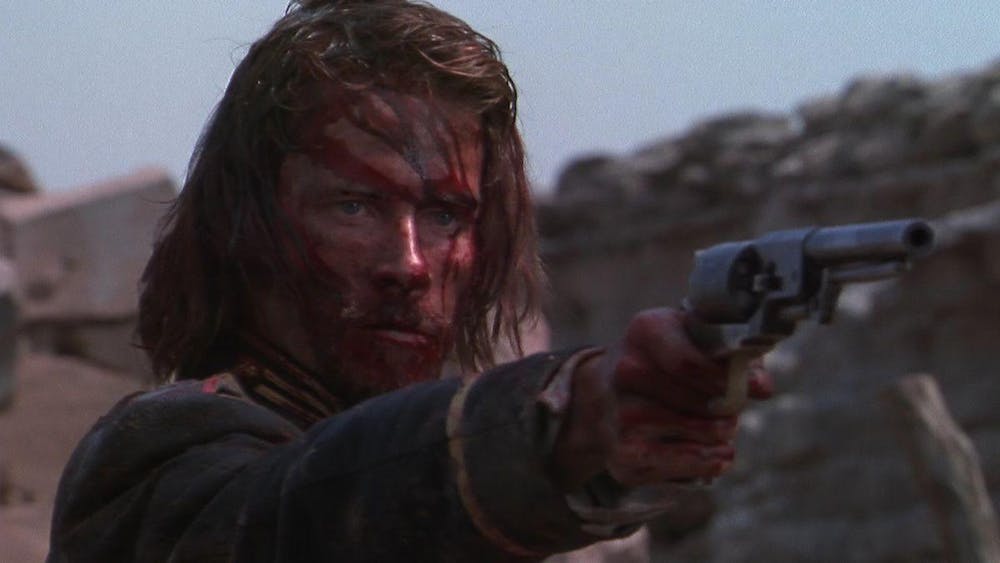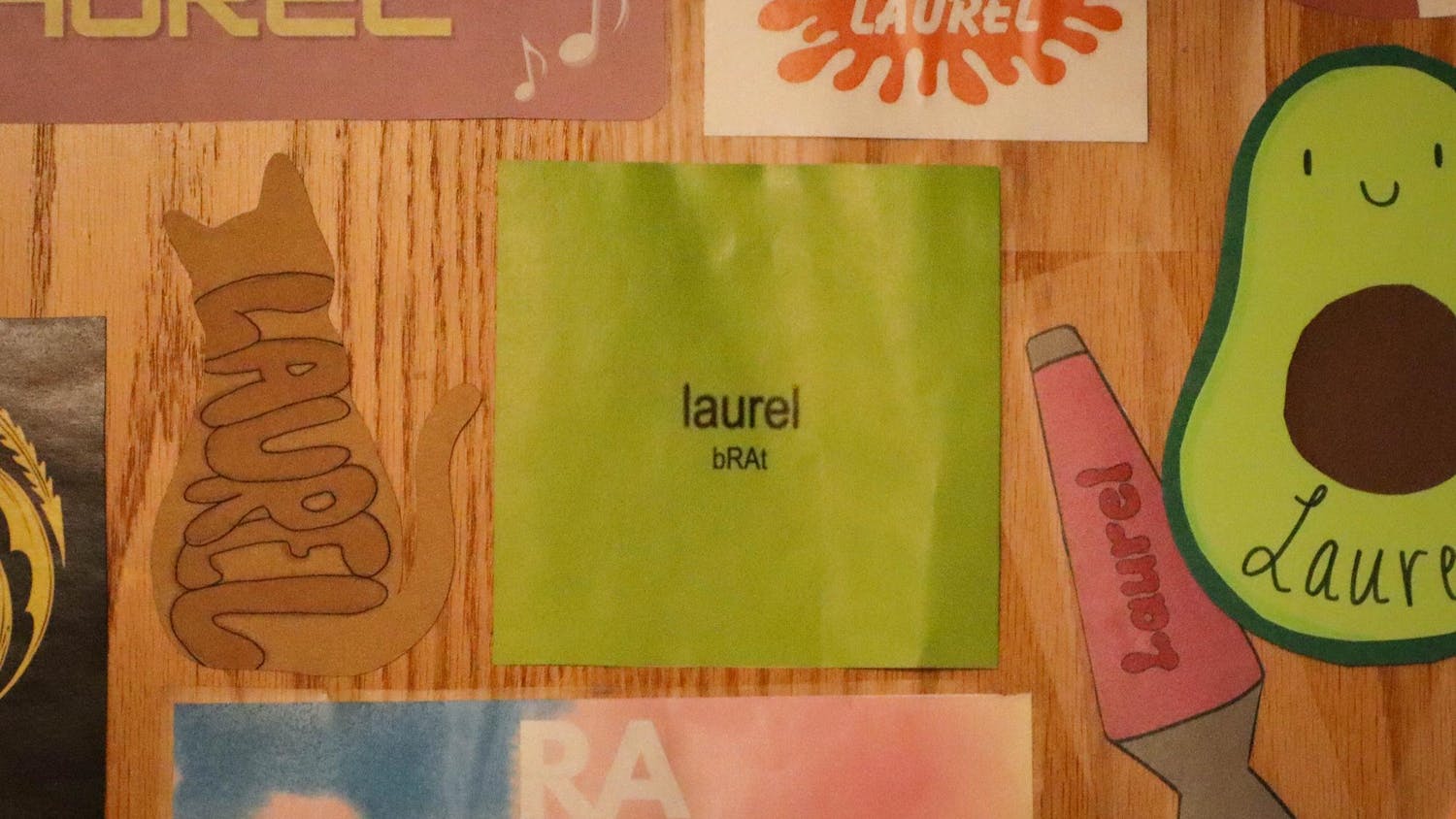One thing about me — I love bad movies. But in my never-ending quest to find the next great bad movie, I sometimes stumble upon films undeserving of this reputation at all. I won’t call the older films on this list “ahead of their time” – sometimes a film’s datedness is what makes it loveable – but their comedic sensibilities do seem better suited for modern audiences. Of course, taste is subjective, but the five films that I’ve chosen to highlight feel distinctly misunderstood for their time.
5.) “Drop Dead Gorgeous” (1999)
“Drop Dead Gorgeous” follows a group of teenage girls competing in a small town’s annual beauty pageant. What begins as a quirky showcase of Midwestern culture quickly evolves into a deadly display of teenage rage, and it’s anchored by a remarkable ensemble cast. Kirsten Dunst, Brittany Murphy, Amy Adams and Denise Richards round out the group of competitors.
When it was released in 1999, the film was accused of being “as mean-spirited as movies come” by a reviewer for the Detroit Times. Unfortunately, the mockumentary genre hadn’t yet been popularized by sitcoms of the late 2000s and early 2010s, so the film’s wry sense of humor didn’t connect with audiences.
4.) “Road House” (1989)
Remember when I said some movies are lovable because they’re dated? “Road House” is one of those movies. Directed by a man whose legal name is literally Rowdy Herrington, this movie has everything: Patrick Swayze wearing little t-shirts, Patrick Swayze living in a chic barn loft, Patrick Swayze beating people up, Patrick Swayze ripping a man’s throat out, Patrick Swayze destroying toxic masculinity — did I mention the film stars Patrick Swayze?
Swayze plays Dalton, a Ph.D. educated bouncer who is hired by the owner of a Missouri honkytonk to clean the place up and increase business. Because almost every scene ends with someone getting punched in the face or thrown to the ground, the film plays like a slapstick comedy, but it never devolves into self-parody. “Road House” is so completely “of its time” that I think it’s one of the most significant films of the era.
3.) “Wet Hot American Summer” (2001)
Set in 1981, “Wet Hot American Summer” follows a group of counselors as they desperately try to make the most out of their last day of camp. For some, this means going on a drug-fueled trip to town or secretly getting married at the lake. For others, it means saving the camp from a satellite that’s falling to Earth or getting advice from a talking can of vegetables. To each their own!
“Wet Hot American Summer” is one of those hard-to-recommend movies you either get or you don’t, and I happen to love it dearly. There’s no central plot – it's basically a bunch of absurd bits stitched together — but its scrappiness is endearing. The cast features many comedy legends who, at the time, were relative newcomers: Amy Poehler, Paul Rudd, Bradley Cooper (in his film debut) and Elizabeth Banks, to name a few.
2.) “Malignant” (2021)
James Wan has repeatedly proven he is one of the modern masters of horror. Three of his films: “Saw,” “Insidious” and “The Conjuring,” broke through the pop culture genre barrier and jumpstarted extremely lucrative franchises. Surprisingly, “Malignant,” his most ambitious film yet, was divisive amongst genre fans and critics, mainly due to its campy tone.
The film is about a woman plagued by visions of grisly murders. When real-life killings begin to echo her dreams, her grasp on reality slips and the body count rises. “Malignant” is Wan’s ultimate exercise in genre and tone, made apparent by the appropriately gaudy direction and clear sources of inspiration (mainly Italian giallo horror). It’s best to go into “Malignant” blind, so I’ll leave it at that. Just know it’s a gory good time with a third act twist so bonkers, my jaw still drops with glee when I watch it.
1.) “Ravenous” (1999)
Less than half an hour into “Ravenous,” I could tell it was something special: a cohesive, tonally unique genre-bender that rolls its eyes at convention. It’s the film that inspired me to write this list in the first place. And it flopped. Horribly.
This horror/western/comedy hybrid follows a group of frontiersmen in an isolated Army outpost in 1840s Sierra Nevada. When a stranger arrives and tells them a sick story about a stranded wagon train’s cannibalistic guide, they go to investigate and discover there’s much more to his twisted tale than he let on.
The film only recovered about 16% of its budget at the box office, and one New York Times critic wrote, “If there's anything worse than a cannibal movie, it's an undead-cannibal movie with pretensions about Manifest Destiny in the American West.” But I argue the film’s commentary on Western expansion, masculinity, repression and power gives it a rare thematic richness.
Also, the film’s so-good-it's-ridiculous score was co-composed by Blur frontman Damon Albarn, so do with that what you will.
Now more than ever, audiences are more open to enjoying idiosyncratic movies that challenge genre conventions and traditional form. I’m not saying “Road House” is an unsung masterpiece, but it is a rapturous display of testosterone-fueled madness and ‘80s nostalgia.
None of these films are technically perfect, but they deserve to be reassessed without the detrimental effects of inaccurate marketing and unwitting critics. Don’t let bad reviews stop you from finding your next favorite movie!






